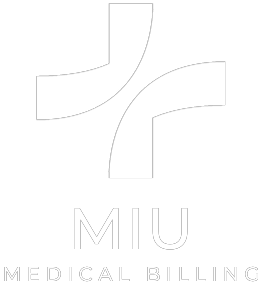Introduction
Texas-based healthcare practices face a lot of problems when it comes to medical billing, especially in 2025, due to ever-evolving guidelines and policies. Managing staffing shortages, finances, and increasingly complex payer regulations can be very challenging for a healthcare provider. The administrative cost is quite high, too, for in-house billing, specifically when it comes to cities like Houston, Dallas, or Austin. Due to all these reasons, many healthcare providers now consider medical billing outsourcing in Texas to be the best decision for their practice.
Experts of MIU medical billing have come up with a guide to help Texas-based physicians, healthcare clinics, and specialty practices understand and evaluate the costs, benefits, and legal compliance related to outsourcing their revenue cycle management (RCM) in 2025.
Medical Practices in Texas Are Turning to Outsourcing. Why so?

Medical billing is much more than just coding and submitting claims. For a state like Texas, it is crucial to navigate a fragmented payer system, manage shrinking margins, and understand billing guidelines and policies.
The main reasons for medical billing outsourcing in Texas are:
- Increased rates of billing errors due to inexperienced staff
- High operational costs for in-house billing departments
- Billing difference in Rural vs Urban practices, e.g., broadband for telehealth claims and network access.
As a provider, if you want to streamline your RCM, reduce administrative overhead, and focus on delivering quality patient care, medical billing outsourcing may be the best option for you.
Major Benefits of Medical Billing Outsourcing in Texas
It can be overwhelming to manage your practice finances and, at the same time, manage patient care. Hence, most providers prefer outsourcing not only out of convenience but also because it delivers Texas-based expertise that aids in maximizing revenue. Core benefits of medical billing outsourcing in Texas include:
- In-depth familiarity with the local payers, e.g., TMHP, Superior HealthPlan
- Certified billers and coders trained according to Texas Regulations
- Speedy claim turnaround and reduced denial rates
- Compliance support to meet both Texas-specific data privacy requirements and federal HIPAA
- EHR integration with analytics, e.g., Athenahealth, Kareo, etc.
How Much Does Medical Billing Outsourcing Cost in Texas?
Texas-based Common Package models:
| Percentage of collections | Flat monthly rates | Per-claim pricing |
| Usually 4% – 9% | $1,000 – $5,000 (dependent on volume) | Commonly used by micro practices and some startups |
Average expenditures by practice type in Texas include:
| Type of Practice | Avg Monthly Volume/claims | Avg Outsourcing Cost/$ |
| Solo | 100 – 250 | 800 – 1,500 |
| Small Group | 300 – 500 | 1,500 – 3,000 |
| Specialty Clinic | 500 – 1,000 or more | 2,500 – 5,000 |
How to know if outsourcing is cost-effective?
It’s when you’re:
- The denial rate exceeds more than 10%.
- Staff turnover is more than 20%
- Internal billing mistakes cost $10,000 annually.
- Practice expands across regions.
Texas-based Medical Billing Compliance Essentials and Regulations

As discussed in our previous blogs, when you outsource your billing, you should be mindful of the fact that the potential billing partner must comply with both federal and state laws because medical billing outsourcing in Texas does not remove compliance responsibilities; it amplifies them.
Any billing company should fulfill the following key requirements:
- Follow HIPAA laws.
- Follow Texas Medicaid and TMHP rules.
- Credentialing and documentation
- Audit readiness
Common downsides:
- Use of generic billing templates across insurance companies
- Non-compliance with Texas-specific laws
- Incomplete documentation
FAQs of Medical Billing Outsourcing in Texas
Is outsourcing medical billing legal in Texas?
Yes, absolutely, it is legal and quite common as long as your billing partner follows HIPAA and Texas Health and Safety Code regulations
Is it necessary to have a Texas-based billing partner?
Not necessarily, but Texas-based billing companies have experience with local insurers, hence highly recommended.
Is there a risk of outsourcing out-of-state medical billers?
There may be risks associated with outsourcing out of state, such as noncompliance with the state-specific Medicaid rules, delayed reimbursements, and higher denial rates.
How long does it take to transition from in-house to outsourced billing?
It typically takes about 2 to 6 weeks, depending on your system and your medical billing onboarding processes.
Conclusion
Medical billing outsourcing in Texas has increased in popularity and is a very strategic move for Texas-based healthcare providers to achieve better revenue cycle management (RCM). The most important aspect is choosing the right partner for your practice who can help you reduce overhead costs, improve compliance, and maintain a consistent cash flow so you can solely focus on providing high-quality healthcare services to the community.
Are you in need of optimizing your billing and looking for a Texas-based billing partner? Choosing MIU medical billing will be your most thoughtful decision for your practice. Contact us today and experience excellence!




